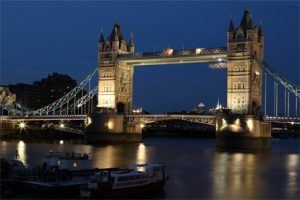What does an European patent in the UK mean after the brexit? While the political struggle is already underway to extend the withdrawal process, the question of how patents and design applications should be applied for in patent and trademark law is becoming increasingly urgent, so that patent- and trademark protection is still valid in the UK after the brexit.
In response, the British Intellectual Property Office (IPO) has published a clear factual check on intellectual property (IP). At first glance, each topic seems to be dealt with from patent protection to copyright issues. But at second glance, however, it becomes apparent that most of these areas of patent and trademark protection have not yet been clarified for the post-Brexit period. The wording in the factual paper is called “The government is exploring various options…” and “The continued effect of EU Directives and Regulations following our exit from the EU will depend on the terms of our future relationship”.
We look at the IP topics mentioned in the factual check and assess the current status.
Trademark protection
 Trademark protection can be applied for at national trademark offices, in Germany at the German Patent and Trademark Office (DPMA), and for European trademark protection at the Office for European Trademark Protection (EUIPO).
Trademark protection can be applied for at national trademark offices, in Germany at the German Patent and Trademark Office (DPMA), and for European trademark protection at the Office for European Trademark Protection (EUIPO).
The British factual paper leaves open the extent to which European trademark protection will still be valid in the UK after the Brexit, but stresses that British companies will of course still have European trademark protection through EUIPO registrations. The British are also concerned about whether British IP lawyers and experts may still represent their clients before the EU Intellectual Property Bureau after the Brexit. This too still have to be negotiated.
It is therefore more informative to mention the membership in the Madrid Protocol, which England would like to maintain after the brexite. This is the safest way to protect a trademark in the UK with international trademark protection after brexit. Applications for international trademark protection must be submitted to the World Intellectual Property Organization (WIPO).
(Source: Info Blog : Madrid Union Assembly Makes Historical Decision)
Design protection
 In the field of design protection, the fact paper also remains open as to whether and how European registered design patents and designs will still be protected in the UK after the brexit. Again, the concrete promise only applies to British companies that will continue to retain their European design protection in the remaining EU states after the Brexit.
In the field of design protection, the fact paper also remains open as to whether and how European registered design patents and designs will still be protected in the UK after the brexit. Again, the concrete promise only applies to British companies that will continue to retain their European design protection in the remaining EU states after the Brexit.
The British IPO also refers here to the possible future membership of an international protection agreement. The British government had made clear its intention to ratify the Hague Agreement as a national agreement. It is envisaged that the British could ratify the Hague Agreement on the International Registration of Industrial Designs (HMA) next year.
The Hague Agreement on the International Registration of Industrial Designs (HMA) provides that international protection can be applied for for designs. The application is filed with the German Patent and Trademark Office (DPMA), with the European Union Intellectual Property Office (EUIPO) or with the World Intellectual Property Organization (WIPO) in Geneva.
Important: An international registration with the designation of Germany as the country of protection has the same effect as a design application under the Design Act.
(Quotation: IP Wikipedia www.legal-patent.com (translation from German))
Patent protection
 In patent protection, the British Government assures British companies that their patents will continue to be protected by European patents in the EU member states even after brexit. Whether and how registered patents will still be valid in the UK after the brexite is unclear.
In patent protection, the British Government assures British companies that their patents will continue to be protected by European patents in the EU member states even after brexit. Whether and how registered patents will still be valid in the UK after the brexite is unclear.
The British government rightly refers to the planned European Patent Court in patent protection. In November 2016, the British had announced that they would continue to hold the European Patent Court (Unified Patent Court (UPC) despite the Brexit vote. However, it is still not clear when the UPC will come into force.
Indeed, Westminster has postponed indefinitely the debate on ratification, which was originally planned for July 2017, while the Scottish Parliament is making concrete progress with the ratification of Scotland, which is also necessary. In Germany, too, the final ratification is delayed for an unresolved period of time due to a constitutional complaint by an initially unknown plaintiff.
copyright
Whether and to what extent works such as music, films, books and photographs remain protected by copyright in the UK after the brexit, remains entirely vague. In this case, the British Government merely refers to worldwide copyright laws that protect British works worldwide.
conclusion
The crucial factor for IP rights in the UK after the brexit is the negotiation between the EU and the UK Government. A few weeks ago, the EU presented a position paper on this subject, which we have already reported on. It remains to be seen how many points from the negotiating document will ultimately be included in binding agreements. Until then, European patent or trademark protection applies to the European countries, both before and after brexit, and we have to wait – and may still hope – for the requirements for patent and trademark protection in the UK after brexit.
Advice on trademarks needed?
All of our attorneys have many year’s experience in trademarks and the protection of intellectual property national and international. Do you have any (further) questions or can we help register your trademark?
Sources:
IP and BREXIT: The facts of the British IPO
Info Blog: Brexit-Effects on the Trademark Licensing Business
WIPO: Goodbye Fee Irregularities – welcome Madrid e-Renewal
Unified Patent Court: Unknown plaintiff stops ratification
pictures: PublicDomainPictures / pixabay.com / CCO License || FrankWinkler /pixabay.com / CCO License || NakNakNak / pixabay.com / CCO License







